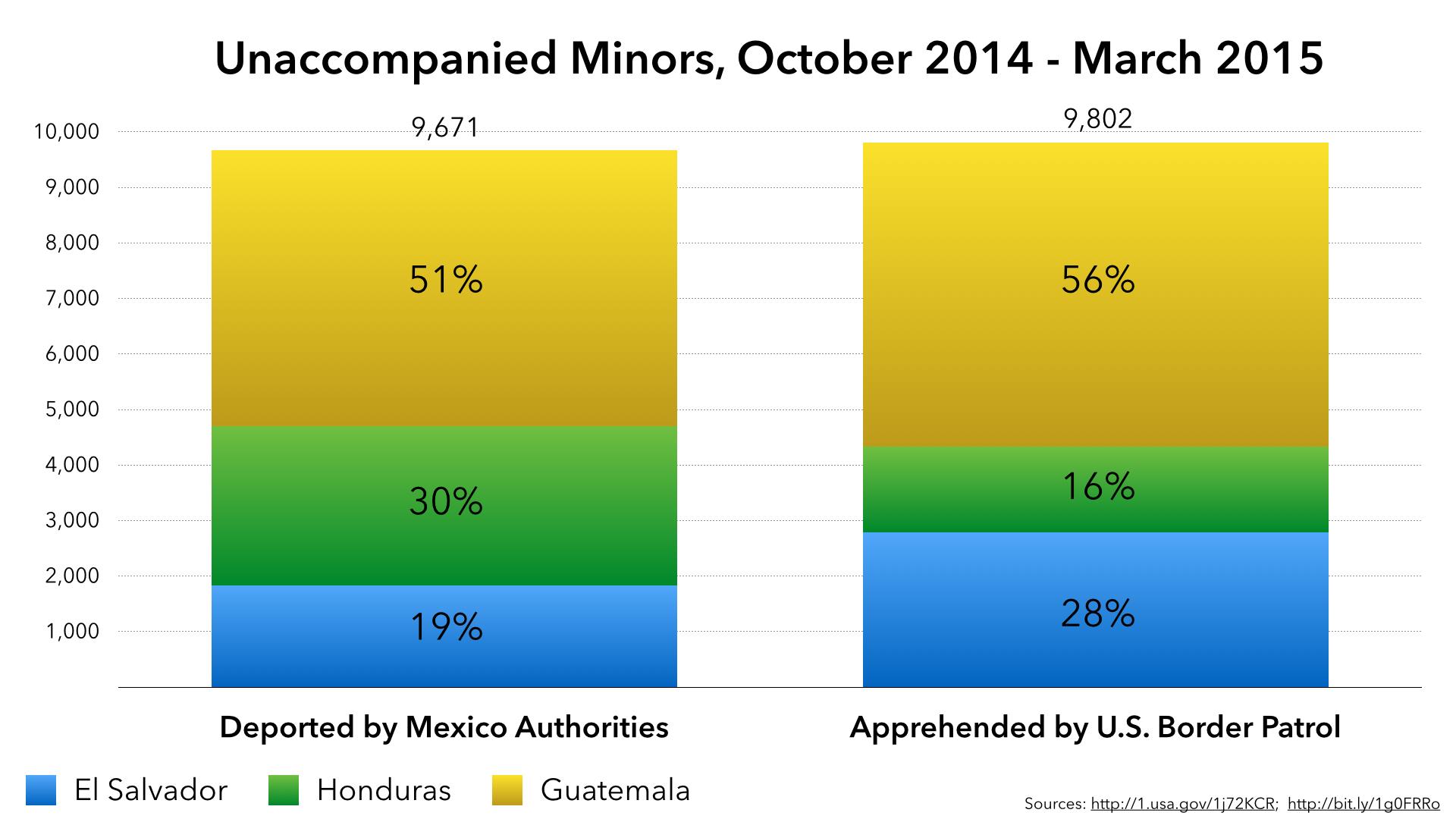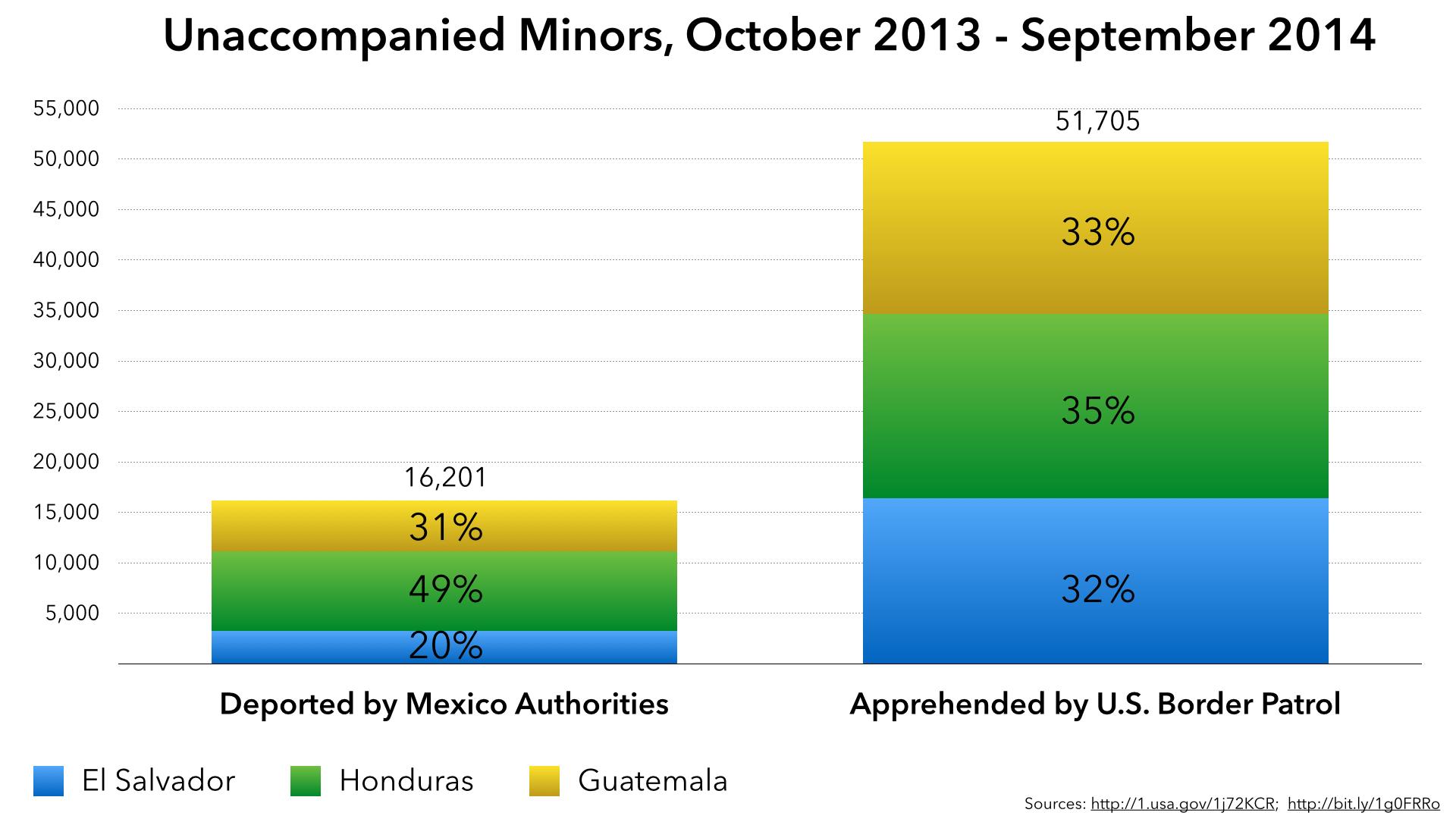Washington D.C.—The number of Central American children and families arriving at the United States border in an attempt to escape violence in their home countries has fallen significantly compared to last year’s peak, but at what cost? The latest official data shows that Central Americans continue to flee north in large numbers and that a massive immigration crackdown in Mexico has resulted in increased deportations of Central Americans, raising serious human rights and due process concerns.
In summer 2014, the Mexican government announced its Southern Border Program, which has intensified immigration enforcement operations, including more checkpoints and raids. In the first three months of 2015, Mexico deported 39,316 Central American migrants, 79 percent more than in the corresponding months of 2014, according to recently released data from Mexico’s National Migration Institute (Instituto Nacional de Migración, INM).
As a result of this crackdown, the number of unaccompanied minors deported from Mexico is now equal to the number of unaccompanied minors apprehended in the United States. Between October 2014 and March 2015, Mexico deported 9,671 unaccompanied children from Honduras, Guatemala, and El Salvador. In this same time period, U.S. Border Patrol apprehended 9,802 unaccompanied children from these three countries. This one-to-one correlation stands in sharp contrast to last year, when Mexico deported only a third as many unaccompanied Central American children as the United States apprehended. “These numbers make clear that Mexico has taken on a new role as an immigration enforcer and that this role has come at least partially in response to U.S. pressure,” said Adam Isacson, Senior Associate for Regional Security at WOLA.


Ultimately, this stepped-up enforcement raises important humanitarian concerns, especially for migrant children. A significant portion of minors leaving Central America are motivated by specific threats to their security, yet Mexico is not adequately screening these children for protection, and the overwhelming majority are deported rapidly back to the situations they were fleeing. “Given the high levels of violence in Central America, it is critical that Mexico screens migrants so that refugees and victims of trafficking or other crimes receive the protection they need,” said Maureen Meyer, WOLA’s Senior Associate for Mexico and Migrant Rights.
WOLA will continue to monitor Mexico’s southern border enforcement and issue periodic updates on its impact and implications in the coming months. We will also continue monitoring the impacts of U.S. border enforcement on migrants at the U.S.-Mexico border. Visit WOLA’s web page for up-to-date analysis and commentary on these issues, including:
- Interactive Map: Mexico’s Southern Border Plan Ramps Up Deportations, May 2015
- Border Statistics Update: Mexico’s Increased Enforcement Matches U.S. Border Efforts, May 2015
- WOLA Expert Weighs In on Mexico’s Southern Border Program, April 2015
- Latest Border Stats Suggest Higher Family, Child Migration in 2015 than Official Projections, April 2015, by Adam Isacson
- Mexico’s Southern Border Plan: More Deportations and Widespread Human Rights Violations, March 2015, by Clay Boggs
- On the Front Lines: Border Security, Migration, and Humanitarian Concerns in South Texas, February 2015, by Adam Isacson and Maureen Meyer
- New Developments along Mexico’s Southern Border, October 2014, by Maureen Meyer, Clay Boggs, and Rodolfo Córdova
- Mexico’s Other Border: Security, Migration, and the Humanitarian Crisis at the line with Central America, June 2014, by Adam Isacson and Maureen Meyer
- WOLA’s Border Fact Check blog
###
Contact:
Hannah Smith
Program Assistant, WOLA
+1 (202) 797-2171
hsmith@wola.org

